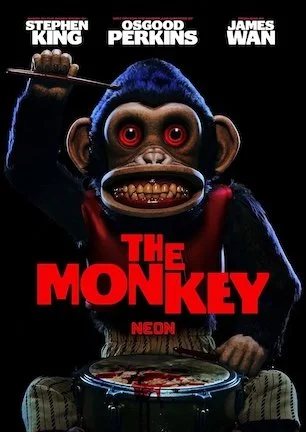Studio: Strand Releasing
Director: Michael O’Shea
Writer: Michael O’Shea
Producer: Susan Leber
Stars: Eric Ruffin, Chloe Levine, Aaron Clifton Moten, Carter Redwood, Danny Flaherty
Review Score:
Summary:
A troubled teen obsessed with vampires is challenged to assess his identity after meeting a similarly alienated young woman.
Review:
Milo’s fascination with Dracula, Nosferatu, and other imaginary creatures of the night doesn’t end with movies. It goes far enough that Milo considers himself to be an authentic vampire in the making. So much so that the troubled teen has taken to murdering men and drinking blood from their throats.
When not following his feeding schedule, Milo’s days are otherwise dull, albeit burdensome. Routine activities include dissuading a school psychologist about his desire to harm animals, running from bullies regularly punishing him with beatdowns, and arguing with his older brother over who should be paying their bills.
Orphaned and effectively alone, Milo is resigned to wearing the alienated outcast hat that society and his situation has knit for him. Then he meets Sophie, who moves into Milo’s apartment building to live with her abusive grandfather.
Sophie’s desperation to find feeling has the young girl engaging in undesirable group sex and cutting her arms afterward to cope. In each other, Milo and Sophie see their fumbling, fractured youths reflected. Mutual despair draws them together, with Sophie consciously and Milo unconsciously struggling for any kind of connection. What Milo doesn’t yet realize is that his tether to Sophie pulls him further from fantasy, and challenges Milo to confront his skewed perception of the person he is, as well as the person he may ultimately become.
Imagery and descriptions associated with “The Transfiguration” possibly paint the production inaccurately. The ‘horror’ hook and Milo’s unhealthy obsession with fanged fiction should not be first factors influencing preconceptions. Nor should they sway anyone into assuming the film is something it is not.
Something “The Transfiguration” is not is a traditionally thought of thriller replete with vampire violence befitting genre classification. Something it is, is an often quiet, often bleak, introspective examination of overcoming hopelessness through humanity.
A wordily reductive “it’s like” pegs “The Transfiguration” as being something like the premise of “Martin” meets the dynamic of “Let the Right One In” by way of “Moonlight’s” meditative mood in a mumblecore character study. The film’s New York indie DNA is deeply designed in reality, cutting out a slice of low-income life with a handheld camera constantly capturing candid moments in guerrilla grit.
Writer/director Michael O’Shea presents Milo’s world using wordless sequences of walking down streets, waiting at bus stops, riding subways, cashing a check, doing laundry, or vacuuming. It’s meant to be mundane to mirror an average existence. Though another takeaway is fair warning for the impatient that “The Transfiguration” is never in a hurry, and atmosphere is thick with its ordinary ambling.
A more immediate obstacle to engagement is Milo’s exploratory enigma. Eric Ruffin and Chloe Levine are organically exceptional as Milo and Sophie. O’Shea puts these marginalized teens front and center with clear confidence in pitched performances, painting a portrait of how aimless ennui can warp a marginalized mind into sociopathy when stranded in a harshly uncaring environment.
The vampire frame plays as a parallel. Milo’s outlet for escape from the everyday pain of poverty and plainness transports him to an impossibly darker world. Here he is empowered, at last in control, but the price for that freedom is his capacity to be an empathic person. However, as tragically transfixing as Milo’s cold characterization becomes, the viewer can’t forge a full bond with the boy because he has no emotions to connect to.
That’s the core catch-22 of “The Transfiguration” being the dour drama it is. From the music to the color palette, everything adds a hollow hum to its hypnotic tone of heartbreaking depression. Concurrently, those essential vacancies in Milo’s personality and the surroundings he inhabits keep the complete movie at arm’s length, booking an audience as passive voyagers on a cruise that can be as immaterial as it is poignant.
Relate to the characters’ conditions through outstanding acting or the downplayed direction and “The Transfiguration” provokes thought via its conception and convictions. Should its meaning become muddied when the meandering loses magnetism, the movie is more likely to miss a personal mark and only inspire apathy.
Review Score: 60







No matter where a personal opinion lands, you still have to tip your cap to an imaginative vision that stays true to pursuing its own path.